#Künstlerroman
Text
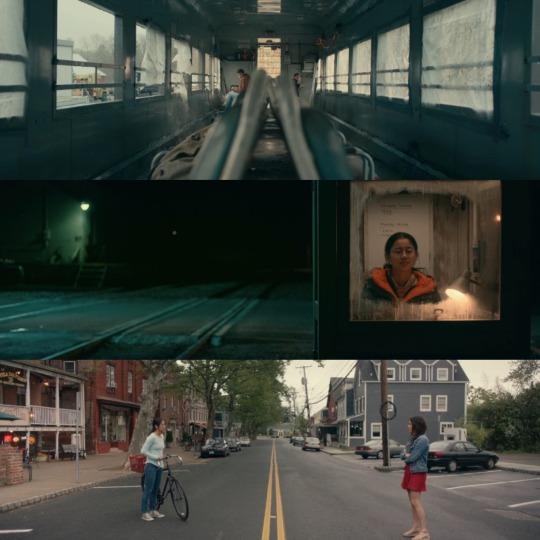
The Half of It (2020, Alice Wu)
10/11/2023
The Half of It is a 2020 American film directed by Alice Wu. The film is loosely based on Cyrano de Bergerac by Edmond Rostand.
The film was released on Netflix on May 1, 2020.
#the half of it#alice wu#cyrano de bergerac#edmond rostand#netflix#coming of age story#Genre studies#genre#literature#theatre#film#Video game#Protagonist#coming of age#bildungsroman#literary criticism#bildung#thomas carlyle#Künstlerroman#youth#the poker house#Winter's Bone#Hick#girlhood#mustang#the diary of a teenage girl#mistress america#the edge of seventeen#lady bird#Sweet 20
37 notes
·
View notes
Photo


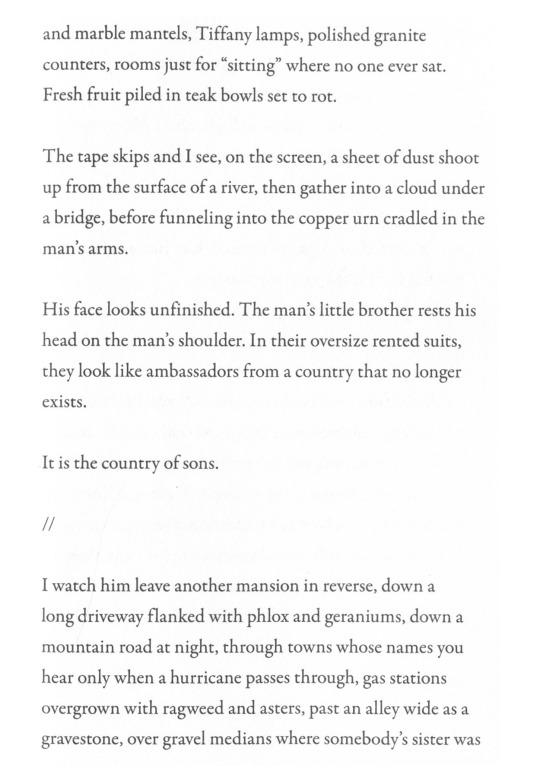
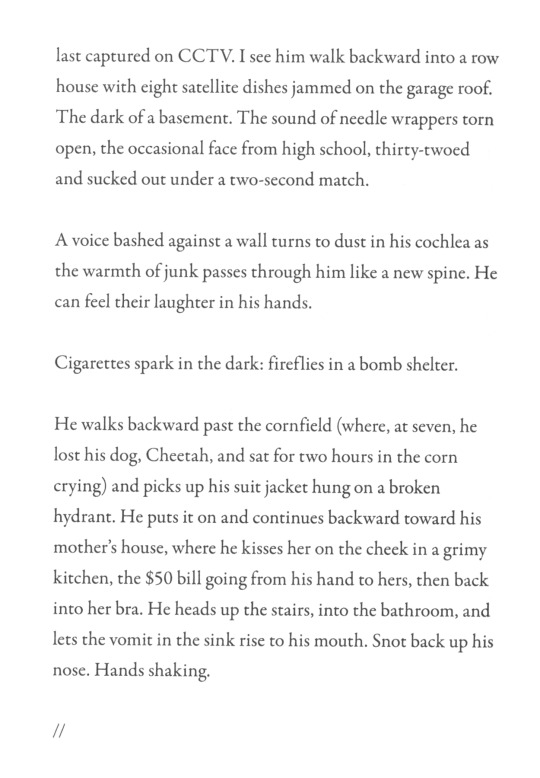
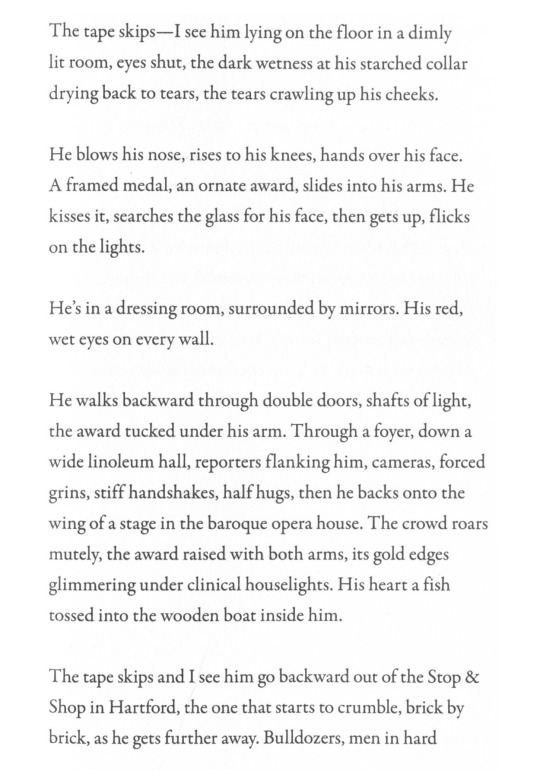
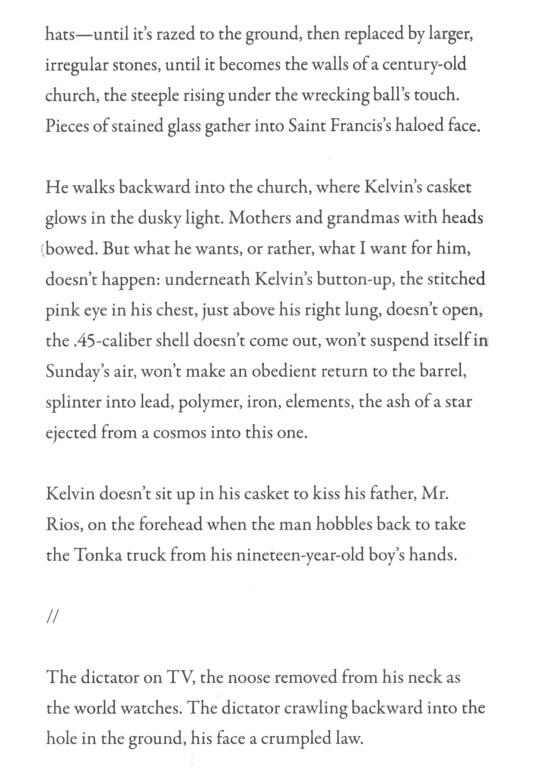
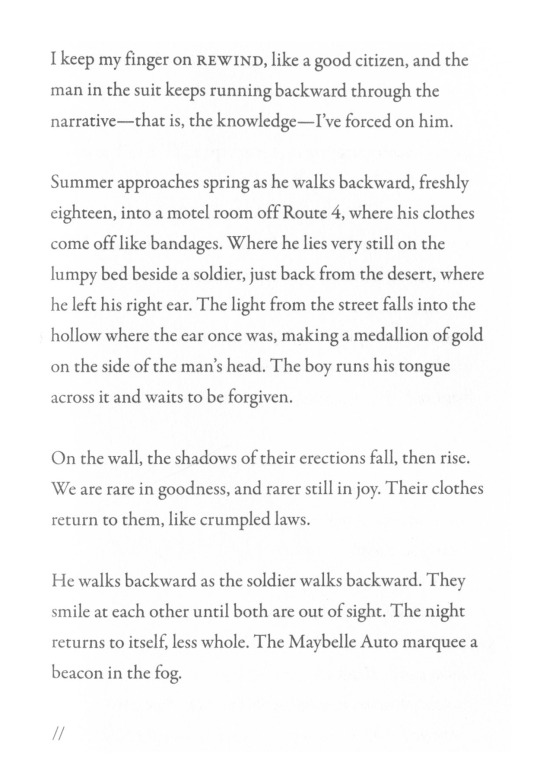

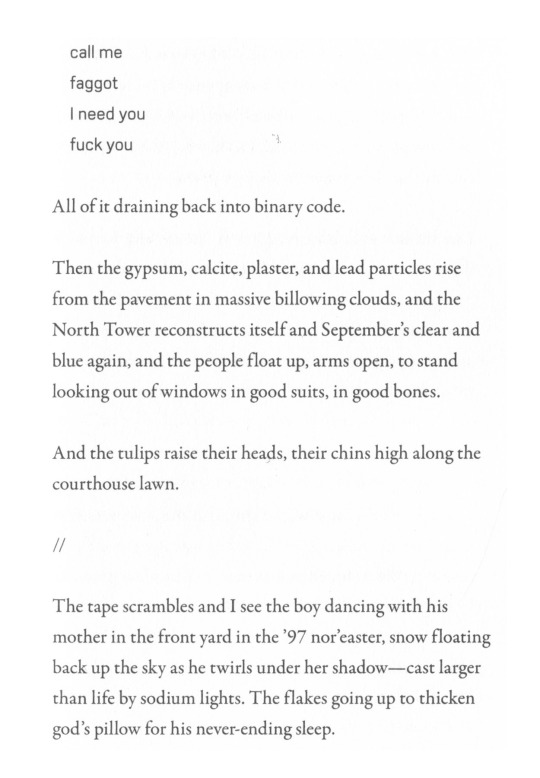
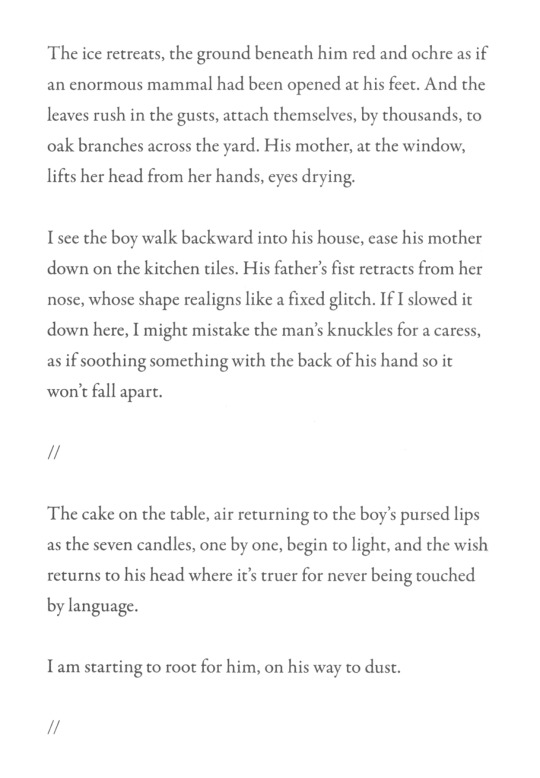
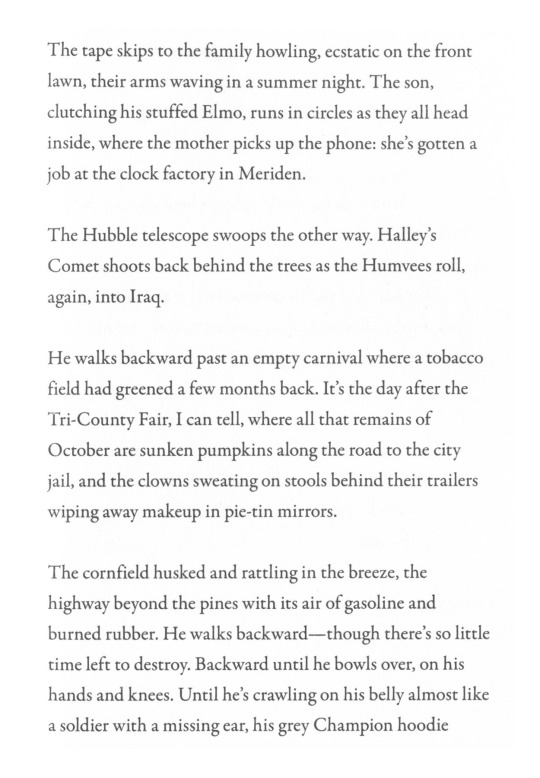
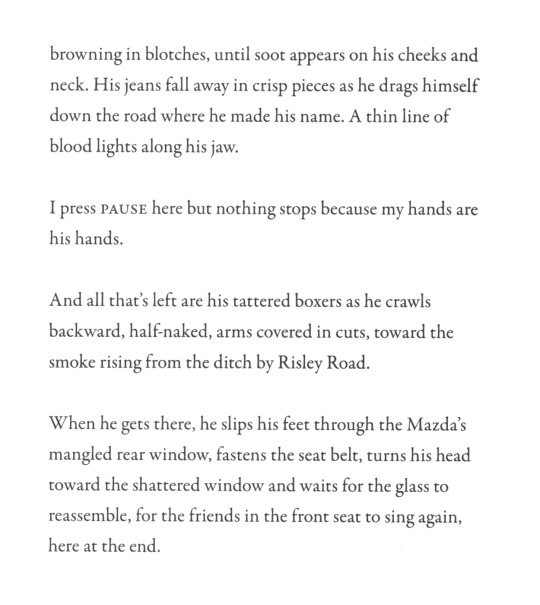
— “Künstlerroman”, Ocean Vuong, Time is a Mother (2022)
3 notes
·
View notes
Text
The Talk: Excellent
I hadn’t heard of Darrin Bell before my mum suggested The Talk, but I can’t wait to spend more time with his work. The Talk is Bell’s memoir of growing up in amid racist structures and people and of his path to becoming a Pulitzer winning editorial cartoonist. A Künstlerroman for those collecting their literary terms. I wish I’d had it to recommend in a recent conversation with a white man who…
View On WordPress
1 note
·
View note
Note
what do you read in your spare time? you’re one of the most eloquent users i know, id love to hear how you find the media you consume and what your favorites are
omg ei 😊 welcome back to the inbox! thank you for your sweet words although i'm probably not qualified enough to be considered the full definition of eloquent. i am going to preface this post by saying that i definitely don't read as much as i should, so this list is not going to be comprehensive whatsoever. the last time i even visited an in-person library was like half a decade ago, and since then my spare time has been nonexistent lmao. anyways, here are some of my favorite/most recent reads as listed by author:

POETRY
richard siken: i think siken is already well-known both in the literary world and in whatever booktok deems is popular culture. if you don't already know him though, he is best known for his poetry collection crush, which delves into themes of obsession, gay love, and violent eroticism. i actually read this chapbook unknowingly. as in i was hounding sketchy pdf download sites at 3 AM and saw a man with bloodied lips on the cover and decided to read it. he basically became my summer fever dream after that. the way he juxtaposes images is seamless, smoother than water. only richard siken can talk about violence without making it sound violent. i also enjoyed his other poetry collection war of the foxes, especially "portrait of fryderyk in shifting light." i think light is a common motif throughout most of his poems, and he manipulates it effortlessly. the most recent piece i read from him is "piano lesson." i have nothing left to say that he didn't already say, so i would just recommend reading it for yourself. he is the og big brain when it comes to word play.
ocean vuong: he's unforgettable, and i mean that literally because nobody forgets a person named ocean. time is a mother was exactly what the name suggests: an exploration of grief, loss, and the rewind of time after his mother's death. some of the poems are almost cinematic in quality. "künstlerroman" is my favorite because it feels exactly like watching a video tape in reverse. i think his most famous work is "someday i'll love ocean vuong." it was the first piece i ever read from him, and to this day, it remains my comfort poem.
silas denver melvin: i only recently discovered him through his chapbook grit. i think he's also on tumblr @/sweatermuppet. he writes a lot on the trans experience, and his work gives me a mix of southern gothic and country vibes. would definitely read his other publications if i had the time.
chen chen: one thing about chen chen is that he always comes to devour. my favorite works from him are "self-portrait as so much potential" and "song of the anti-sisyphus." you have to put on your thinking cap for some of his poems, but once you grasp the meaning, everything makes sense all at once.
franny choi: "disaster means without a star" was the entire inspiration behind my first rin fic. i relate to her more personally in regards to the diaspora experience, but her collections are worth reading in general because of the sheer quality.
pages matam: his poem "piñata" was what got me into slam poetry. his work mostly consists of political commentary which i feel is particularly relevant in today's social climate. "on learning america's english" also resonates with people who have encountered the entire losing/learning immigrant tongues experience.
laura lamb brown-lavolie: i've only read one spoken word poem from her, and tbh i only needed to read one. "on this the 100th anniversary of the sinking of the titanic, we reconsider the buoyancy of the human heart" is my two-headed calf poem. one day i will get this tattooed.
brendan constantine: once again, this was the result of me being chronically online coupled with the boredom of an august heat wave. i found "the opposites game" through TED. honestly, i was a bit unsure about it at first, but it's a cute little poem that makes you really delve into the intricacies of craft.
TEEN POETRY & PROSE
yasmeen khan: she could mouth her words onto every square inch of my body, and i would still be coming back for more. ingraining them into flesh is not enough. "movie stars" is by far my favorite work from her. she writes about femininity and womanhood so profoundly. it's tragic, but really i wouldn't have it end any other way.
kaya dierks: her writing is basically middle-of-nowhere small town stoner teenage life but personified. "crushed" is my favorite piece from her. the soundtrack for this work was definitely by ethel cain, and you cannot convince me otherwise.
FICTION
madeline miller: i was first introduced to her when i read the song of achilles. let's just say that book had me nonverbal for the greater half of three months. it was my metaphorical hatchet. i buried it once, and i never want to dig it up again. i read circe a few years later. the first time was during the blue hour at an airport, right between one red-eye flight and another transfer. i don't even remember that experience because i was heavily sleep-deprived. i read it again recently for a literature course, this time for academic analysis. overall, i enjoy the the heroine-centric narrative. typically, i'm a bit wary of novels with heavy feminist themes because they either project their agenda too strongly or they run the risk of misrepresentation. circe doesn't exactly have that problem. it was more about empowerment and less about exercising power over others.
charlotte brontë: as a historical figure, brontë was questionable, but jane eyre most certainly was not. that book rewired my brain, and that is saying something because i have never read any classic by choice. and it is so important to me that jane was the ugliest, plainest girl you could ever imagine. also cus i unironically enjoy angst, and this book was full of dramatic misunderstandings.
yoko ogawa: i love japanese literature, so there is no reason not to include this one here. "a peddler of tears" is one of my favorite short stories. i did not expect the ending at all, but it was welcome. something about violence, body gore, and dismemberment being framed as romantic and semi-erotic just gets to me. sign me the hell up. hotel iris is a hit-or-miss with some people. either you like the fact that art makes you uncomfortable or you shut it down completely. for me, i was alright with exploring some of its darker themes, but read at your own discretion.
NONFICTION
ross gay: he lives up to his name both in optimism and in carefree joy. probably one of my favorite creative nonfiction authors simply based off the accessibility of his writing style. easy to read and understand but still hits you with the full force of a semi-truck. i would recommend his book inciting joy. it's a collection of essays that delve into grief, but since this is ross gay, he makes it seem like a quintessential part of life.
paul kalanithi: sixteen-year-old me was mind blown by him cus before that doctors were shrewish old men with bald spots and sterile coats, not poetic surgeons who dissected the anatomy of word and recited t.s. eliot in the most heart-wrenching way possible. he is everything i want to become in both life and death. when breath becomes air literally does take your breath away.
25 notes
·
View notes
Text

Ocean Vuong, Time Is a Mother; “Künstlerroman”
143 notes
·
View notes
Text
Like it or Not, Kim is on a Coming of Age Journey Too (a Character Analysis/Meta).
*I’m not excusing what Kim did, but I get why he did it, and that’s what is leading to this post. This is just my analysis and opinion.
Yes. I do have beef with Kim for leaving Porchay in a drug ridden club, but it was that moment that made me realize that Kim’s on a coming of age journey too, even though he’s 22(?) in the television series. In my previous post, I explained what a Bildungsroman is, and to some degree, Kim fits into that definition. More precisely though, he fits into Künstlerroman, which translates into “the apprenticeship novel” and is a novel that details the progression of an artist, musician, or painter. A famous example of a “successful” Künstlerroman is James Joyce’s Portrait of the Artist as a Young Man, though I have read other stories of “failed” Künstlerroman stories (failed as if the artist dies, does not achieve his goals as an artist, etc). Here, with Porchay’s coming of age journey in mind, I am suggesting Kim is on a coming of age/artist journey as well: one that intertwines art and obligation.
**Edit: Please read the replies for a literal translation of the term Künstlerroman which, in German, actually translates to “the artist’s novel.
However, Kim’s special in a lot of ways; usually the Künstlerroman ends with the artist rejecting commonplace and ordinary life; this is because the artist is determined to live an artistic life. Breaking with the traditional definition, Kim does this from the get-go. From the start of KinnPorsche, we know that Kim rejected his version of the commonplace life: the youngest son of the Mafia family. He escapes to become an artist, and continues to pursue that dream (as we see he’s still in school, teaching others how to play, etc.) This is important to keep in mind because as we break down Kim’s aspects of the Künstlerroman, his “ending/end goal” may be different from Porchay’s, despite both of them being aspiring musicians.
1) Loss
Despite being in his early twenties, I’m still going to suggest that Kim’s on a coming of age journey, particularly one heavily tied to identity and art, because he also experiences the first three aspects of the Bildungsroman/Künstlerroman. Kim and loss are just as intertwined as Porchay and loss. Kim’s lost a parent, and he causes the loss of his relationships with his brothers (as in, he chooses to stay away from them.) Kim is at a loss when it comes to identity, constantly being pulled in so many directions due to his love of music and due to his obligations towards the Main family. It is a culmination of these losses that makes him embark on a journey for answers. Like Porchay, loss develops Kim’s sense of morality; he is willing to do whatever it takes to find answers to protect the ones he loves. In a way, he’s on the other end of the spectrum. Decisions for Kim are black and white. But his reasonings behind them are any shades of gray that let him continue onto his journey.
2) Journey
These losses and potential losses (the threats on his family) also begin the search for answers. Kim travels far and wide to find answers: he goes back to the home he’s escaped. He sneaks around his father’s study. He visits Porchay’s home, the music studio, and the temple all to find answers. He is, to some degree, on a journey to find truth and to further establish who he is as an artist (in relation to that truth). Like Porchay, for Kim, loss is a part of the journey. He, to some degree, loses Porchay, the person he is on this coming of age journey with, and he’s prepared for this loss for quite some time. However, he’s not exactly okay with this loss (as we found out in episode 12 when he tries to guide Porchay again) and it is impacting the actual trajectory of his journey. He’s now focused on who killed Porchay’s parents as he is now on a journey for answers for the person he cares about.
3) Conflict
Kim’s got a multitude of conflicts that can progress and hinder his coming of age journey. I’m going to put aside his conflict with Porchay because to be honest, Kim’s at conflict with himself, and it's manifesting into shouting at Porchay. Kim’s journey is heavily tied to Porchay’s because of parallel losses (familial, mostly) and because Porchay is now involved in the mafia family. But the conflict is more layered than Porchay simply acting out. Kim’s conflict is that Porchay has a choice to do whatever he pleases: Kim has never had that choice. Kim probably had to fight, and continues to fight, for the artist’s journey he’s on. To see Porchay throw that away is a huge blow to Kim’s belief system. Kim’s also at conflict with the mafia family that is the biggest obstacle to his formation as an artist. Kim is trying to fight against a system that very few thrive under (and here, I’m thinking about Kinn admitting that he does not like the glitz and glamor of a mafia lifestyle and prefers a quiet life with Porsche). Kim’s also at conflict with his art; it’s increasingly difficult to create art without Porchay, so pushing Porchay away ultimately aggravates this internal/artistic conflict.
4) Maturity
Let’s face it. Kim’s not very mature. He’s pushing away people who want to help and care for him. He’s just as volatile when it comes to emotional decisions as Porchay (if he really thought yanking Porchay out of the club would help… then I got news for you, Kim). But, we see a glimpse of maturity from him when he drags Porchay out. From his facial expressions, the way he parts and closes his mouth several times, you can tell Kim is holding back a huge lecture/tantrum. You can tell he’s opting for giving Porchay choices rather than taking them away. And of course, we should be wary of this; he is definitely calculating, he’s definitely clever, but he’s certainly not mature because shouting at Porchay is not the way to get through to him.
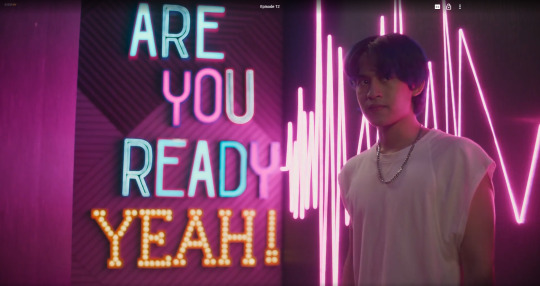
Perhaps an allusion to both of their adulthoods/maturities is when their confrontation happens in front of this sign: “ARE YOU READY YEAH!” There’s a few ways to interpret this. The sign could literally be asking both characters if they’re ready to pursue adulthood. Kim walks away from the sign; he has no choice but to pursue the adulthood he knows of (murder, mafia, loss, etc). That’s how he was raised; that’s all he knows. On the other hand, Porchay stays near the sign, hesitant to broach adulthood. He’s not ready for the adulthood that Kim’s grown up with.
Another way to read this is that the sign has no question but provides the answer; whether they are ready or not, their respective coming to age journeys are reaching a climactic point. YEAH. As in, neither of them have a choice; adulthood, with its successes and failures, is here. Regardless, Kim’s attempt to embrace adulthood through whatever the Mafia defines it as is not mature; it’s the desperate actions of a young man trying to formulate his identity.
What does maturity look like for Kim, then? In my opinion, it must have some sort of self-responsibility and accountability, which I don’t think Kim has taken yet. His journey, whether as artist or mafia son, has trampled on so many, and until he faces that, his Künstlerroman might end terribly. The Künstlerroman usually ends with the artist rejecting everyday life and opts for one that culminates to an unstable but artistic life. That’s what Kim had at the start of KinnPorsche, and that’s what he has now, so I am eager to see how his journey ends. I would want Kim to return to a life of art, a place where he can be who he is, but until Kim takes that responsibility, he is just as immature as Porchay and therefore, still on a coming of age journey.
Read my companion piece to this, Porchay is on a Coming of Age Journey (a Character Analysis/Meta) here.
#I am not fucking around tonight friends#you must all suffer with me#Kinnporsche#KinnPorsche Meta#KinnPorsche the Series#Kim Theerapanyakul#Kim Khimhant Theerapanyakun#KimChay#KinnPorsche ep 12#kinnporsche spoilers#bildungsroman#I might be projecting again idk#KimPorchay#KP meta
116 notes
·
View notes
Text
[https://open.spotify.com/episode/72uqBpK3SiakdPiTDNO1CS]
Jonah and Wednesday welcome KT back to the club room! The three hosts get the water just right before jumping into SHOWERS again!
The Story: https://www.reddit.com/r/nosleep/comments/83s4kw/the_showers_part_3/
Music Credits: https://patriciataxxon.bandcamp.com/
Our Tumblr: https://creepypastabookclub.tumblr.com/
Our Twitter: https://twitter.com/CreepypastaBC
Guest Host:
KT(she/they) (https://filthburger.bandcamp.com/album/an-organ-and-its-microbiome)
Featuring Hosts:
Jonah (he/they) (https://withswords.tumblr.com/)
Wednesday (they/them) (https://wormsday.tumblr.com/)
Works Cited:
Coen, Ethan; Coen Joel; Inside Llewyn Davis (https://www.imdb.com/title/tt2042568/)
Further Reading:
Kunzelman, Cameron; Lutz, Michael; Walker, Austin; Rangedtouch, Shelved By Genre; http://rangedtouch.com/shelved-by-genre/
Lyne, Adrian; Rubin, Bruce Joel; Jacob’s Ladder (https://www.imdb.com/title/tt0099871/)
Nabokov, Vladimir; Pale Fire
Questions? Comments? Email us at: [email protected]
6 notes
·
View notes
Text
“We are rare in goodness, and rarer still in joy.”
Ocean Vuong, “Künstlerroman,” out of Time is a Mother
32 notes
·
View notes
Note
keeping this ad vague on purpose to reach to as many people as possible!
currently seeking new storytelling & worldbuilding partners (18+) to write with, discuss, and most importantly, to befriend ! i am somewhat selective about who i interact with but everything i am looking for will be described in detail within this post.
what i am looking for first and foremost are dynamic partners who are passionate about storytelling and creating worlds we can both gush about and feel proud of. what i am *not* looking for are writers that are unwilling to go past their bubbles and comfort zones, meaning writers who only write "submissive*, white, cis and fem characters will not be interacted with (k-pop/k- drama/idol fcs will be included in this as i am incredibly uncomfortable with them.) this is especially important to me as my niche is writing semi-realistic diaspora fiction or otherwise inspired by the latter.
my writing style is best described as kitchen sink realism. i love getting into the nitty gritty of social realism. i can write from advanced literate to novella depending on my inspiration and muse. i have been told my writing is quite detailed. as far as characters go, i like to make separate characters for each plot and i ask for my partners to do so as well (please no "pre-made" characters unless they are repurposed ideas!) my characters also tend to be quite diverse as i love to explore various cultural, romantic and gender identities. trans and queer characters are more than welcome if not preferred! platonic & familial relationships are something i would love to explore as well.
i do not use faceclaims unless i genuinely find one that fits the character im writing to a T, but i do not mind if my partners prefer to use them ! also, i tend to use the block button quite freely especially if the user has ghosted me in the past or if i dont want them interacting with me. it's nothing personal, rather i am simply curating my online experience.
my favourite genres are thrillers, proletariat literature, bildungsroman, künstlerroman, roman à clef, dark academia & dark romanticism, but historical fiction with a combination of all of these is my ultimate favourite 💓
( interested ? interact with this post or dm me to get to plotting right away !)
like or dm if interested !
3 notes
·
View notes
Text
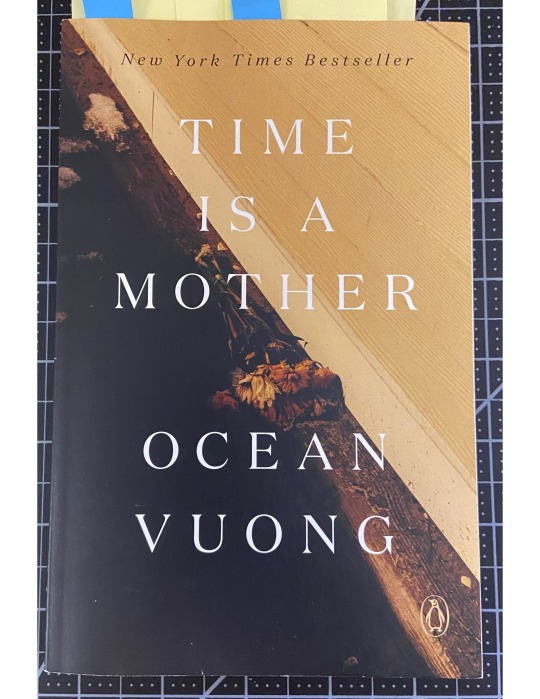

Here's two books I've been reading to help with my project!
"Time is a Mother" by Ocean Vuong is one of my new favorite poetry books. In this poetry collection, Vuong attempts to understand his grief over his mother's death, his life experiences as a gay man, and his existence as a Vietnamese American man living in America. My favorite poems are "Künstlerroman" and "Amazon History of a Former Nail Salon Worker".
"Graphic Design for Everyone: Understanding the Building Blocks So You Can Do It Yourself" has been very interesting for me personally. I'm a studio art major, so I have no experience with graphic design. However, for my zine I want to be able to use a digital medium, so I'm trying to learn as best I can.
3 notes
·
View notes
Note
I think I remember you saying you were going to write a meta post about the second season compared to the first. Did you ever end up writing that? I love reading your posts!
Thanks, anon! I did not! Real life kind of caught up to me haha and I haven't had the time to go back and watch the two in one go. That being said, the one thing that I've been circling around a lot, basically since the middle of S2 is that the two seasons feel generically different.
To get a little teacher-y for a hot second: what genre does for readers/viewers/consumers is to set up certain expectations about what's coming and how it will be delivered. Obviously those expectations can be refused or subverted--part of the fun of being a writer, after all--but it's kind of like setting yourself on a given course and trusting that the vague outlines will help your readers or viewers follow along with the story you want to tell. (Because, right, if you went into Romeo and Juliet thinking it was a romcom instead of a tragedy, you'd be pretty bummed when they both died. Or if you went into Modern Family thinking it was a documentary, you'd be confused.)
With season 1--both through the show and the after-the-fact commentary from critics and fans alike--we got set up to think a certain way about the kind of show it was and the kind of story it wanted to tell. A lot of fans and critics talked about it as a dramedy, which set expectations for tone, and praised the character-driven approach it took to narrative work, which set us up to assume that level of deep interiority would be sustained. I personally read it as, in many ways, a spin on a traditional künstlerroman (a story about an artist's growth to maturity)--in this version, it was a story about two artists growing into their own creative potential alongside and through the intervention of the other (the "we make each other better and funnier" ethos that we all loved).
Given what we got in season 1, we* as a viewership (*realizing we is not and never will speak as a unified whole) expected more of the same from season 2. We expected the writers to explore what it would mean to take this developing creative project out from the little insular bubble Ava and Deborah had built together and onto the road. We expected the personal-level betrayal of the email to have deep, resonating impacts across the whole season. We expected more glimpses into Deborah and Ava's interior lives that would explain some of those actions or choices that might otherwise seem discordant or inexplicable (or, to use the critics' language, make them deeply unlikeable).
Instead, season 2 (particularly the first chunk of episodes) shifted tone and genre on us. (There are plenty of moments and things I like in S2, but I've already written about them in my ep-by-ep posts a lot.)
A lot of critics have written about season 2 as a journey story, but I'd actually push back pretty hard on that generic classifications for reasons I won't get into for the sake of length and nerdiness haha! I think instead season 2 was more of a picaresque - deeply episodic storytelling where each episode may have built to a vague journey outline but whose ramifications were largely confined. Picaresques trade in interesting, often ever-changing locales; new, eccentric characters; and vignette style plots. They deal in laughs and (mis)adventures and aren't particularly concerned with character growth and deep interiority. Obviously we did see characters confronting their moments of failure, but there wasn't the same kind of protracted reckoning or repercussions I think many of us expected. Instead of the character-driven storytelling of S1, it felt like the tour bus was literally and figuratively driving the second season. The stops dictated the plot, and the plot drove the characters into new situations where they were largely reacting.
And the thing is? It could largely be thought of as a success on those terms. But that disjunction between what many of us expected and what the show gave us makes it feel like it fell short (outside of more specific critiques of individual moments or plots). And I think so many of us really loved the second half of the season because, in many ways, it shifted more and more back to something closer in mood and dynamic to season 1. It started falling back into the kind of storytelling we expected of it.
Anyway, I don't know if this is at all of interest to you, and apologies if not haha, but for what it's worth we can call this my season 2 overarching meta!
#ask me anything#hacks hbo#my meta#hacks season 2#genre theory#not a tag i thought i'd end up using on tumblr dot com but here we are
34 notes
·
View notes
Text
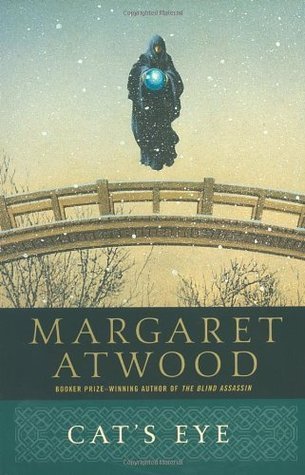
Margaret Atwood's Cat's Eye is a sharp study of a very female torture
As we approach the novel’s 30th anniversary, it’s hard to think of many characters who have endured pain like Atwood’s Elaine
One of the first things you notice when embarking on the unsettling experience of reading Cat’s Eye is that its narrator, Elaine, is herself unusually observant. Her memories of her messed-up childhood are more than vivid. On the first page, she remembers her brother studying while standing on his head (he claims that this will make the blood run down into his brain and nourish it), while wearing his “ravelling maroon sweater”. We are introduced to Elaine’s teenage friend Cordelia, who has “grey-green eyes, opaque and glinting as metal”. Cordelia is on a streetcar with Elaine and they wear: “long wool coats, with tie belts, the collars turned up to look like those of movie stars and rubber boots with the tops folded down and men’s work socks inside. In our pockets are stuffed the kerchiefs our mothers make us wear, but that we take off as soon as we’re out of their sight … Our mouths are tough, crayon red, shiny as nails.”
And on it goes: everything about the way people look and present themselves is precisely rendered and catalogued. The smells Atwood describes are especially evocative: that streetcar “is muggy with twice-breathed air and the smell of wool”; Stephen “smells of peppermint LifeSavers” over his usual scent of “cedarwood pencils and wet sand; the alcohol her entomologist father uses in his work “smells like white enamel basins”. As Elaine even tells us, with typical wryness: “We remember through smells, like dogs do.”
At first, this vivid act of time travel makes for a pleasant adventure, with Cat’s Eye feeling like a portrait of the artist as a young woman. This is a type of novel so well recognised that academics have even borrowed a German word to describe it: Künstlerroman.
While we’re among the academics, I might even invoke Roland Barthes, who once suggested that “the sense of the object always trembles – not that of the concept”. Which is roughly to say, physical descriptions can resonate with us more clearly than ideas. It was eating a madeleine that brought on Proust’s emotional flood of memories, not just missing his grandma. And in Cat’s Eye, it’s very often the physical world that helps us see how Elaine is feeling.
Most notably, when she is nine, she bites her lips, chews her hair and peels the skin off her feet, going “down as far as the blood”. For her, the pain “gave me something definite to think about, something immediate. It was something to hold onto.”
The pain in Cat’s Eye sets it apart from any standard notions we might have of what should happen in a Künstlerroman, for Elaine has endured torture that feels unusual in literature even as we approach the novel’s 30th anniversary. She has been bullied by female friends – and moreover, bullied in a manner precision-engineered just for her.
As Elaine carefully observes the world, her tormentors are observing Elaine. When we first meet the teenage Cordelia on those opening pages, we are told she has an acute sense for detail. (“Cordelia can tell cheap cloth at a glance. ‘Gabardine,’ she says. ‘Ticky-tack.’”) But it’s when we see her as the 10-year-old chief instigator of Elaine’s suffering that her powers really come to the fore. She constantly monitors Elaine, demanding to know what she has in her pockets, enlisting accomplices to report back on her behaviour, deportment, conversation – in all of which she finds fault. Worse still, Cordelia makes Elaine scrutinise herself: “Cordelia brings a mirror to school … She takes it out of her pocket and holds the mirror up in front of me and says ‘Look at yourself! Just look!’ Her voice is disgusted.”
Though this cruelty feels very specific to Elaine, there’s also something universal about it. Elaine realises that women are always judged and “there is no end to imperfection”. The details that have been building up over the course of the book start to feel ever more oppressive. As critic Molly Hite once noted: “They reinforce the imputation that growing up female, even growing up as a white, middle-class female in a prosperous North American country, is different only in degree from living in a police state.”
Pain can be found everywhere and in everything. “The toaster is on a silver heat pad,” Elaine tells us. “It has two doors, with a knob at the bottom of each, and a grid up the centre that glows red-hot. When the toast is done on one side I turn the knobs and the doors open and the toast slides down and turns over, all by itself. I think about putting my finger in there, onto the red-hot grid.”
If you think that sounds nasty, read what happens when she encounters a wringer. When you are always being watched, your own powers of observation can extract a terrible price.
8 notes
·
View notes
Text
The tape scrambles and I see the boy dancing with his mother in the front yard in the '97 nor-easter, snow floating back up the sky as he twirls under her shadow—cast larger than life by sodium lights. The flakes going up to thicken god's pillow for his never-ending sleep.
The ice retreats, the ground beneath him red and ochre as if an enormous mammal had been opened at his feet. And the leaves rush in the gusts, attach themselves, by thousands, to oak branches across the yard. His mother, at the window, lifts her head from her hands, eyes drying.
I see the boy walk backward into his house, ease his mother down on the kitchen tiles. His father's fist retracts from her nose, whose shape realigns like a fixed glitch. If I slowed it down here, I might mistake the man's knuckles for a caress, as if soothing something with the back of his hand so it won't fall apart.
— Ocean Vuong, "Künstlerroman," Time is A Mother
#time is a mother#ocean vuong#quotes#literary quotes#literature#writing#books#spilled ink#poetry#thoughts#lit#pretty quotes#quote of the day#reverie#reverie quotes#quote#book quote#book quotes#inspiring quote#inspiring quotes#beautiful quote#beautiful quotes
6 notes
·
View notes
Text
Best Films of 2022
As some of you might have noticed, I didn’t publish many pieces or read many fiction books this past year. The reason for that was that 2022 was a particularly busy year for me in terms of schoolwork and regular old work, specifically my first unit of CPE residency to become a hospital chaplain. Still, though, I did manage to see around 50 movies released this past year. Here are my picks for the best of them.
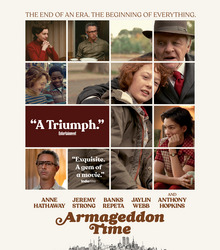
15) Armageddon Time – Dir. James Gray
If I had a nickel for every Jewish-American cinematic Künstlerroman released in 2022, I’d have two nickels, which isn’t a lot but it’s weird that it’s happened twice. Jokes aside, Armageddon Time is a fantastic coming-of-age story, and the specter of Anthony Hopkins really helps keep its head above the water of becoming excessively maudlin. In the hands of a lesser filmmaker, this material could've come across as excessively preachy, but Gray nails the correct tone for making it hit like a sledgehammer. That said, somehow in all the time before watching this movie I'd managed to avoid the news that the Trumps were in it. When I tell you that I felt ice water in my gut when they first appeared, I mean I felt like I cannonballed into the Arctic Ocean. I've said it before, but one of the most obnoxious things about Trump is that he's going to become as ubiquitous in future media as a metonym for everything that's corrupt and evil in the USA as Lincoln is for all that's good and noble. I just want Trump to GO AWAY.
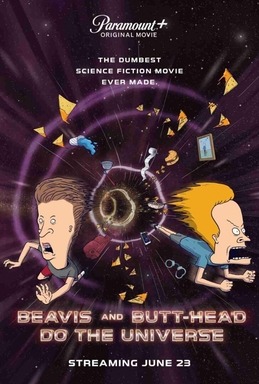
14) Beavis and Butt-Head Do the Universe – Dirs. John Rice and Albert Calleros
I cannot believe that this ended up being one of my favorite movies of the year. It begins with one of the cinema’s greatest nut-shots and only gets funnier. A bacchanalia of juvenile stupidity.
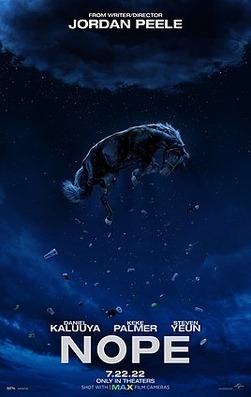
13) Nope – Dir. Jordan Peele
We as a society need to do whatever it takes to keep Jordan Peele making his intensely unique, intensely bizarre flights of cinematic fancy. This damn thing was a slow-burn horror film, a heist movie, a thriller, and a creature feature rolled into one.
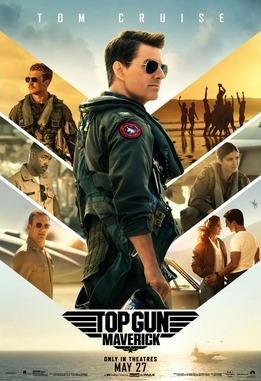
12) Top Gun: Maverick – Dir. Joseph Kosinski
The best male weepy since ONLY THE BRAVE (2017). Light years better than it had any right to be, and not really as toxic as I expected. Some of the most fun I’ve had in a movie theater all year. Not the MOST fun, but it’s definitely way, WAY up there.

11) 32 Sounds – Dir. Sam Green
I've been a fan of Sam Green and JD Samson after seeing one of their Live Cinema shows at the Brooklyn Academy of Music several years ago. I am thrilled to report that Green's new film 32 SOUNDS is probably the best translation of their specifically mind-blowing, tender, and intimate live performances that we'll ever get. With only 32 sounds, Green captures a kaleidoscope of the human experience in ways at once amusing yet profound, devastating yet hopeful.
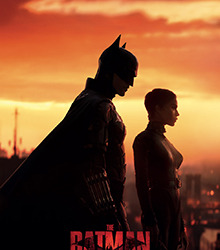
10) The Batman – Dir. Matt Reeves
“I don't know if that was the BEST Batman movie, but it was definitely the MOST Batman movie. That said, it was refreshing to see a Batman film that remembers that he's a world-class detective. I have issues with this film, but almost all of them fall away when I think about how we finally got a superhero film that truly, deeply cares as much about images as it does the characters and stories. The Batmobile emerging from a wall of fire, muzzle flashes illuminating dark hallways like bolts of lightning, Batman leading a spiderweb of survivors through floodwaters while holding aloft a flare—these are IMAGES that are going to stick with me for a long time. Also, that opening sequence of petty criminals getting scared by the sight of the Bat-Signals leading up to Batman emerging from the subway tunnel... #chefskiss“”
[Full review at http://www.unseenfilms.net/2022/03/nate-hood-on-batman.html]
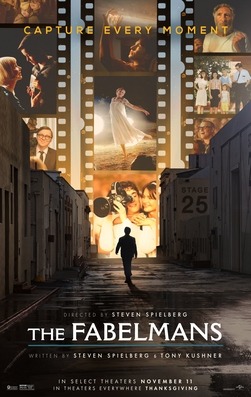
9) The Fabelmans – Dir. Steven Spielberg
An extraordinary work of compassion, contrition, and grace. So much more than an autobiography—it's a Rosetta Stone for one of the cinema's greatest artists. I am have no idea how Spielberg and Kushner can explore feelings and emotions of such byzantine complexity while making it seem so effortless and natural. Pure wizardry.
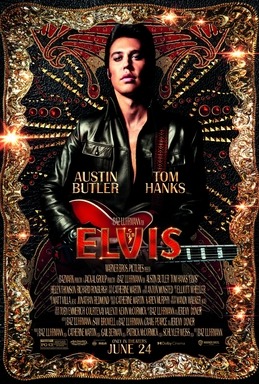
8) Elvis – Dir. Baz Luhrmann
The first half is pitch-perfect rhinestone gaudiness and the second half almost Shakespearean tragedy. It's equal parts pathos and bathos, wrapped in silk and slicked with pomade. Baz Luhrmann has been preparing his entire career for this one movie and it shows. I'm honestly mystified by people dunking on Tom Hanks' performance. Was it an accurate depiction of Colonel Tom Parker? Probably not, but Hanks created perhaps the greatest ghoul in popular American cinema since J. K. Simmons' Terence Fletcher. And finally, the early sequence juxtaposing a young Elvis spying on a blues joint and attending a gospel revival ranks up there Bheem attacking the British gala with his animal friends in RRR and the opening scene from THE BATMAN as my favorite so far of 2022.
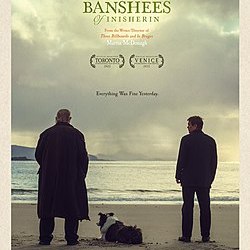
7) The Banshees of Inisherin – Dir. Martin McDonagh
This one absolutely gutted me. I spent the last forty minutes of that film scarcely breathing because I kept waiting for The Bad Thing to happen after the banshee made her prophecy. Also, this film was like watching an autistic person's worst nightmare made real. I'm serious. You want to know the one thing an autistic person fears the most? The people they love suddenly deciding one day for no apparent reason that they just don't like you anymore.
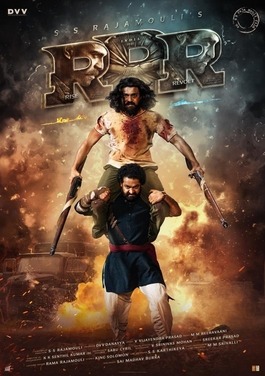
6) RRR – Dir. S. S. Rajamouli
“After years of Hollywood franchise glut—of reboots and remakes, spin-off miniseries and bloated two-part finales—watching S. S. Rajamouli’s Telugu-language epic RRR is like taking that first breath of outside air after being cooped up all day in an office building with no air conditioning. It’s like taking a long, cool sip of ice water after days in the desert with nothing to drink but lukewarm Diet Coke. It’s like being reminded for the first time since you were a child amazed by the moving pictures on the television that movies can truly do anything, say anything, and be anything. It’s not just the most triumphant, crowd-pleasing blockbuster in years, it’s the best, most exhilarating action movie from any country since George Miller’s Mad Max: Fury Road (2015).”
[Full review at: http://www.unseenfilms.net/2022/06/nate-hood-on-epic-masterpiece-rrr-2022.html]
youtube
5) ACTION BUTTON REVIEWS: Boku no Natsuyasumi – Dir. Tim Rogers (YouTube: Action Button)
The Ross McElwee/Lester Bangs of video game journalism returns with another 6+ hour opus on a video game most gamers outside of Japan may never have heard of before. Somehow, it’s his best yet. An exhaustive yet somehow never exhausting autobiographical examination of nostalgia, loss, and memory, Tim Rogers somehow finds in the act of playing a video game about a young boy’s summer vacation in the Japanese countryside a simulacrum for the universal human experience.
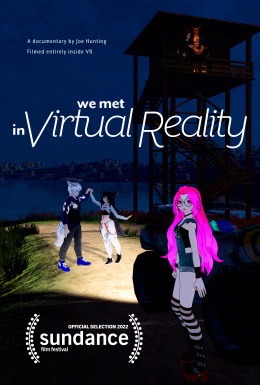
4) We Met in Virtual Reality – Dir. Joe Hunting
Talk about a dark horse pick for one of the best movies of 2022. I've said it before and I'll say it again: my favorite kind of art is the art that makes me feel more human. WE MET IN VIRTUAL REALITY is a stunningly moving and sincere look at how humans have begun creating social ecosystems in virtual spaces. It would've been so easy for director Joe Hunting to play the things he found for laughs—and in fairness, it's easy to chortle at the idea of an anime couple proposing to each other after meeting in an exotic dancing class or a group of furry avatars talking about their sexual orientations around a campfire—but he looks for the human beneath and within his subjects.
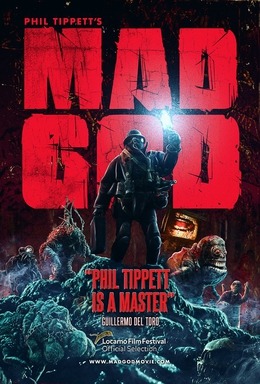
3) Mad God – Dir. Phil Tippett
A Voynich Manuscript of stop-motion blasphemies; a compendium of Švankmajer nightmares and H.R. Giger fever dreams. Hieronymus Bosch wept. If your reaction to this movie was that it didn't have enough plot, I hate you. If anything it had TOO MUCH plot. Don't be fooled by the stop-motion animation—there's more Stan Brakhage in this film's DNA than Hieronymus Bosch. I can say with no exaggeration that this film was one of the most overwhelming aesthetic experiences I've ever had in a movie theater. I could feel myself frozen to the seat for its entire runtime.
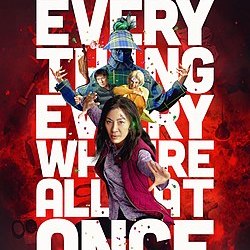
2) Everything Everywhere All At Once – Dir. Daniel Kwan and Daniel Scheinert
As a film critic, I've seen literally thousands of movies. But only a handful have ever given me an experience close to approximating Stendhal syndrome. I can say with some certainty that EVERYTHING EVERYWHERE ALL AT ONCE is the only one to involve a sex toy kung fu fight.
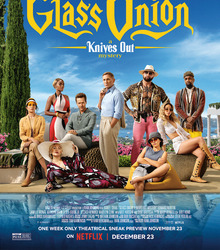
1) Glass Onion – Dir. Rian Johnson
GLASS ONION left me in a near-constant state of shock and disbelief for its last hour. I have no idea how Rian Johnson was able to outdo KNIVES OUT, but here we are. It's smarter, funnier, nastier, and proves that the first film's populist overtones were no fluke. That it wrapped BEFORE Musk bought twitter is one of the greatest acts of cinematic prognostication maybe ever? But it's so much more than just a furious defenestration of billionaire tech bros, it's another condemnation on how the uber-rich close ranks to protect their own. That whole scene where Miles' "friends" joined in Janelle Monáe's destructive rampage—but only for a little bit!—is such a powerful statement on how celebrities will performatively ape leftist politics in between private jet flights to cross union picket lines. But my favorite part of the film was watching it with my mother. She originally had no interest in it when I chose it (it was my turn to pick the movie!). I LOVED watching it cast the same spell on her that it did on me until by the end she was LITERALLY on her feet cheering! I'm sorry, but I don't know how you could look at Rian Johnson's last three films and NOT consider him one of the best filmmakers working today. I don't know if any director since the heyday of Spielberg has more perfectly mastered the art of the crowd-pleasing genre film. THE LAST JEDI then KNIVES OUT then GLASS ONION back-to-back-to-back? Ladies and gentlemen, THAT is a friggin' cinematic pedigree.
2 notes
·
View notes
Text
Title: Time Is a Mother
Author: Ocean Vuong
Publication Date: April 2022
Publisher: Random House
Genre: poetry, queer lit
Hmm, I don’t think this collection hit me as hard as his previous one, Night Sky with Exit Wounds, but maybe it’s because Time Is a Mother was different in tone and approach. It felt as though there was a kind of shift that occurred, where Night Sky with Exit Wounds focused a bit more on the grief and trauma he inherited, while Time Is a Mother focused more inwardly and related to his own grief and memory. Furthermore, this collection really highlights the significance of losing his mother, which is a new and crucial theme to consider. These poems felt a bit more experimental, almost as though Vuong was trying to figure out what other affective approaches existed.
The collection was a little polarizing for me. The poems I didn’t care for, I really didn’t care for, but the poems that really struck me were absolutely provocative and/or breathtaking. My two favorites were “Amazon History of a Former Nail Salon Worker” and “Künstlerroman,” and I felt that the latter especially demonstrated Vuong’s poetic talent. It had stunning imagery and was packed with so much emotion. It was easily the best poem from this collection that I would say is the must-read.
Some favorites: “Beautiful Short Loser,” “Rise & Shine,” “The Last Prom Queen in Antarctica,” “Dear T,” “Not Even,” “Amazon History of a Former Nail Salon Worker,” “Künstlerroman,” and “Almost Human”
CW: death (of parent), suicide mentions, grief, mentions of war, cancer, racism mentions, sexual assault
9 notes
·
View notes
Text
youtube
A Portrait of the Artist as a Young Man by James Joyce [Audiobooks Unabridged] Künstlerroman - Listen to the full audiobook by clicking here > https://youtu.be/V4ySXjafDUU
#classics#beauty#women#men#beautiful#audiobook#book#art#history#vintage#youtube#lovely#literally#action#adventure#life#horror#thriller#movie#romance
2 notes
·
View notes